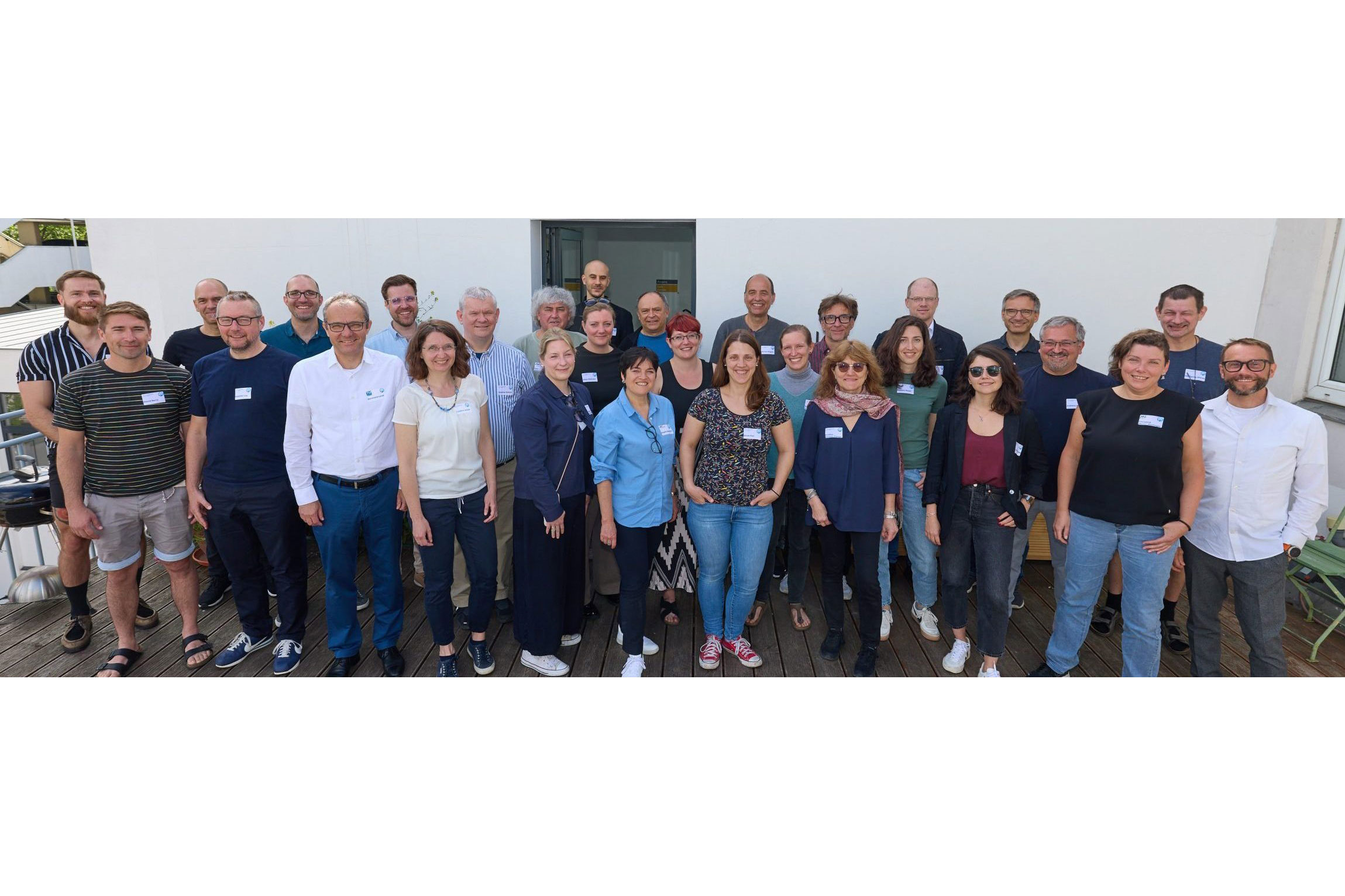On May 6, 2024, CoE key researchers gathered for the third and final CoE Science Day. The day was filled with stimulating presentations on microbiome monitoring, medical and environmental interventions, and the Synthesis module.
For each of the nine work packages, the work package leaders presented their research plans, hired staff and initial activities. These engaging presentations, covering a wide range of topics, were followed by stimulating discussions that fostered collaboration and synergies across the CoE.
The three work packages of Project 5 strongly focus on microbiome monitoring and precise microbiome modifications for human health. Andreas Bergthaler (Med Uni Wien) presented his approach to exploit the full potential of wastewater monitoring from an urban sewer system for public health. Gregor Gorkiewicz (Med Uni Graz), a specialist in fecal microbiota transplantation (FMT), introduced his plans to improve the success and applicability of FMT and to study its effects on immunity, metabolism, and the nervous system – via the gut-brain-axis. Finally, Thomas Böttcher (Uni Vienna) will systematically study eavesdropping on interdomain signals, that is, non-members tuning into intradomain signals of eukaryotes, bacteria, fungi, and archaea, and deriving information guiding symbiotic or hostile interactions.
Project 6 aims to develop microbiome-targeted interventions to improve environmental health and sustainability. Angela Sessitsch (AIT) and her team in WP 6.1 are working towards improving plant growth while reducing fertilizer use to an absolute minimum. Stephan Krämer (Uni Vienna) and his team in WP6.2 will design microbial communities to harness the full potential of enhanced silicate weathering for carbon sequestration. Finally, Alexander Loy (Uni Vienna) shared his approach to studying microorganisms that feed on organic sulfur components that are connected across ecosystems and influence soil, plant, and human health.
The final Project 7 is structured into three work packages that follow a uniquely broad approach to identifying fundamental mechanisms of microbiome dynamics. Andreas Richter (Uni Vienna) and his team aim to describe general mechanisms of growth and turnover in complex microbial communities in the human gut, soil, and ocean environments. Holger Daims (Uni Vienna) shared his plans to enhance our understanding of microbial interaction mechanisms and networks for community functions and services. Finally, Christina Kaiser (Uni Vienna) and her team in WP 7.3 will identify universal patterns of how microbial communities respond to pulsed perturbations or oscillating environmental conditions.


